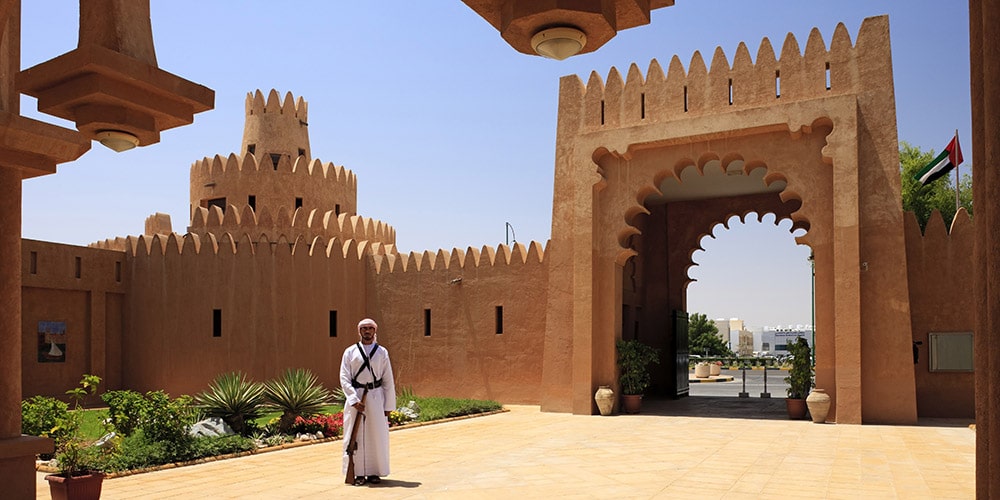Quick Guide
The ideal time for Abu Dhabi travel is Nov. through March, when temperatures hover around 30 C (86 F). Summers can be positively broiling, though prices drop; if you visit between June and Sept. keep cool at Abu Dhabi’s many indoor attractions.
Visas
Nearly all travelers entering the UAE are required to show a passport. U.S. nationals do not require visas to visit the UAE for stays less than 30 days; they will be granted a free One Entry Visit Visa.
Money
Local currency is the dirham. ATMs are widely available and credit cards are generally accepted. Prices are fixed in most shops, but it’s possible to bargain in souks and outdoor markets.
Travel Health
Check with the United Arab Emirates government website for the latest health safety information, including travel protocols and requirements like negative COVID-19 tests, quarantines, mask mandates and more in connection with COVID-19. Before traveling, research and prepare for what to do if you get sick while away.
Getting Here
Abu Dhabi is served by Abu Dhabi International Airport (AUH).
Getting Around
Travelers most often rely on taxis to get around the city. Abu Dhabi Taxi has metered taxis and operates a ladies’ cab service.
Local Lingo
Arabic is the official language in Abu Dhabi. If you’re thirsty in Abu Dhabi, it helps to learn the names of a few local drinks. Gahwa: Arabic coffee. Sulaimani: Mint and lemon tea. Karak Chai: Indian tea. Laban: A salty, yogurt-based drink.
Must-Have Apps
Visit Abu Dhabi; Wojhati; Abu Dhabi Taxi
Insider Tips
When planning what clothes to pack, go conservative. Both men and women should have their knees and shoulders covered at all times, unless at the beach where swimsuits and bikinis can be worn.
The ideal time for Abu Dhabi travel is Nov. through March, when temperatures hover around 30 C (86 F). Summers can be positively broiling, though prices drop; if you visit between June and Sept. keep cool at Abu Dhabi’s many indoor attractions.
Visas
Nearly all travelers entering the UAE are required to show a passport. U.S. nationals do not require visas to visit the UAE for stays less than 30 days; they will be granted a free One Entry Visit Visa.
Money
Local currency is the dirham. ATMs are widely available and credit cards are generally accepted. Prices are fixed in most shops, but it’s possible to bargain in souks and outdoor markets.
Travel Health
Check with the United Arab Emirates government website for the latest health safety information, including travel protocols and requirements like negative COVID-19 tests, quarantines, mask mandates and more in connection with COVID-19. Before traveling, research and prepare for what to do if you get sick while away.
Getting Here
Abu Dhabi is served by Abu Dhabi International Airport (AUH).
Getting Around
Travelers most often rely on taxis to get around the city. Abu Dhabi Taxi has metered taxis and operates a ladies’ cab service.
Local Lingo
Arabic is the official language in Abu Dhabi. If you’re thirsty in Abu Dhabi, it helps to learn the names of a few local drinks. Gahwa: Arabic coffee. Sulaimani: Mint and lemon tea. Karak Chai: Indian tea. Laban: A salty, yogurt-based drink.
Must-Have Apps
Visit Abu Dhabi; Wojhati; Abu Dhabi Taxi
Insider Tips
When planning what clothes to pack, go conservative. Both men and women should have their knees and shoulders covered at all times, unless at the beach where swimsuits and bikinis can be worn.
Did You Know?
Abu Dhabi’s Sheikh Zayed Grand Mosque is the world’s third-largest mosque and the largest in the UAE; it can hold up to 40,000 worshippers. The mosque houses the world’s largest hand-knotted carpet, which is comprised of more than 2.2 billion knots.
Marriott Bonvoy Offers & Promotions
Enjoy exclusive offers on hotels stays and experiences in Abu Dhabi
Offers
Where to Stay
Book Over 30 Hotel Brands Around the World
10 Hotels
10


















